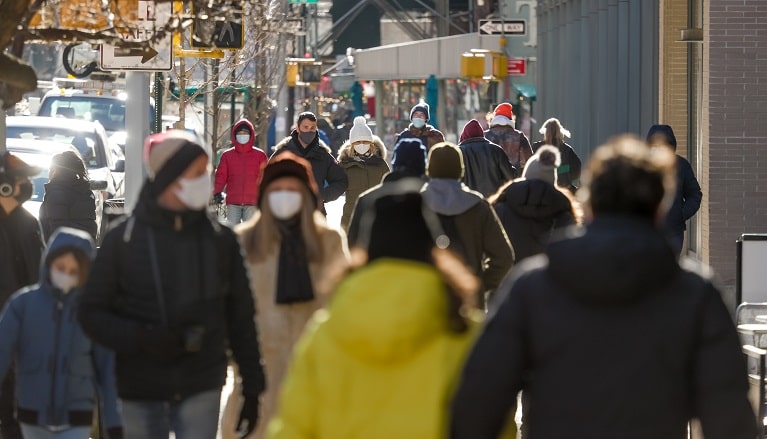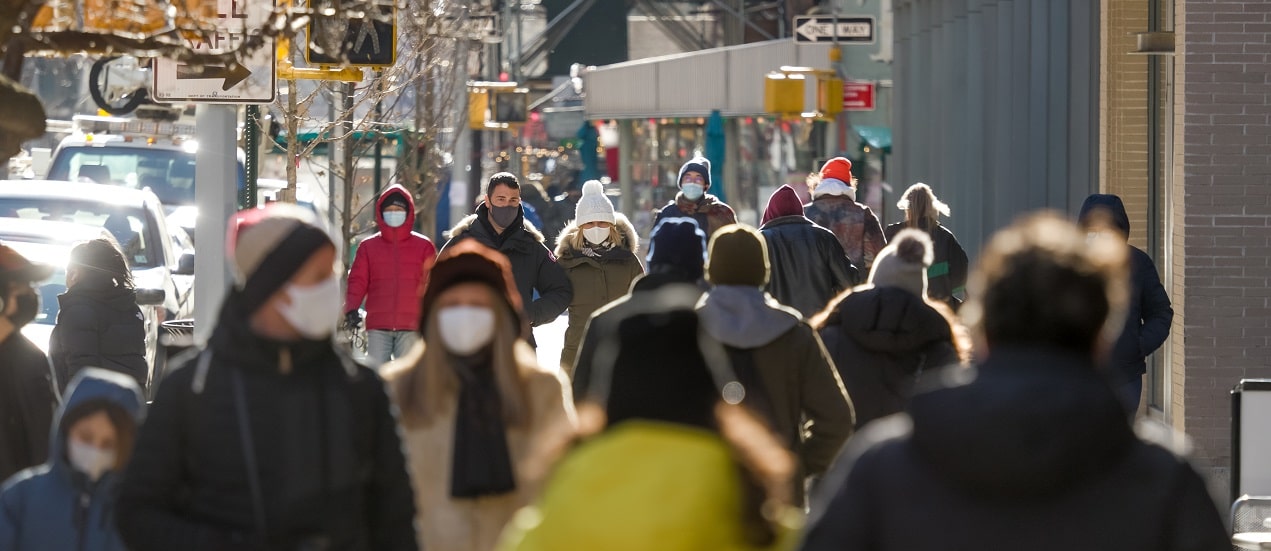The COVID-19 pandemic has hurt our urban centers. The pandemic exposed our cities' vulnerability to effectively tackle health crises of such a magnitude. Even our ‘Smart Cities’, barring a few, have been no exception. COVID-19 has successfully jolted our smart cities and municipalities out of their inertia, making us realize that this may not be the last healthcare crisis to hit us. Even if this pandemic caused severe damage to the world economy, and cities are facing massive revenue deficits and slashed budgets, we are still seeing the increasing deployment of smart city technologies around the world at all levels of government to help fight against the Coronavirus.
What have some of the leading smart cities done right?
With more than 100+ large smart cities globally, few amongst them stood out when it came to displaying foresight and resilience as far as Coronavirus is concerned. Key differentiators that set such smart cities apart included putting in place:
- Strong connectivity and digital infrastructure including, an active ecosystem of technology providers and developers at the core
- An extensive citizen involvement, adoption, and usage of technology solutions
- Implementing learnings from similar health crises such as SARS, notably the Asian cities
Smart cities in Asia took the lead, having learned from their experience with SARS and Influenza H1N1 outbreaks. Hong Kong developed a smart city blueprint in 2017 that included implementing several digitalization steps that many other cities are considering only now. The entire blueprint was built upon citizens’ needs keeping in mind the city’s unique challenges, strengths, and opportunities. It incorporated all the smart city domain areas with a special focus on healthcare, infrastructure, governance, and economy. The entire implementation was split into immediate, mid-term, and long-term goals, and technology investments were mapped out accordingly. Consequently, the city has been extremely successful in beating the COVID-19 waves.
South Korea provided one of the most successful demonstrations of the power of smart city technologies. Consequently, it became one of the few countries that did not resort to complete lockdown to reverse the infection spread. The country’s smart city data hub system allowed the government to conduct advanced contact tracing using cameras and other sensors.
Singapore increased its technology investment spending by 30% to develop new technology tools. The city has successfully implemented a suite of digital solutions for its citizens and associated agencies to manage the crisis effectively. Middle East cities, especially in UAE and Dubai, also deployed a wide array of smart technology applications in their containment efforts. Dubai adopted an AI surveillance system to identify citizens leaving their homes without authorization during lockdown. Similarly, UAE adopted an existing solution to ensure social distancing and lockdown rules are being followed.
Many Indian smart cities did exceedingly well in the country’s fight against the pandemic. For instance, Hyderabad has implemented an AI-enabled video analytics solution for social distancing, triggering real-time alerts to security personnel in case of violations. Similarly, Varanasi has been using drones for city surveillance and disinfection. Majority of the smart cities have set up an Integrated Command & Control Center (ICCC) for comprehensive monitoring of various pandemic containment initiatives.
Amongst European smart cities, Valencia was selected to lead the international task force ‘Emergency response of COVID-19 cities’. The aim is to create a global data-sharing platform and develop a policy framework for the smart management of public health emergencies. Florence in Italy used the 'smart traffic management' to monitor citizen activities during the lockdown period.
Are smart cities seeing an increase in 5G deployment?
The pandemic has brought about a massive shift in citizens’ lives and how industries, enterprises, and institutions will function moving forward. There has been an enormous increase in data demand on the consumer end while enterprises and institutions have realized the need to fast forward their digital transformation journey. For our cities to successfully navigate this ‘new normal’ requires putting in place a much more resilient and intelligent technology infrastructure, powered by 5G, edge, IoT, and other key technologies. Telcos have always viewed smart cities as strategically important for their business and have successfully established themselves as a key ecosystem player in their growth, who better than them to pivot this 5G led transformation.
The initial few months into the pandemic did result in few blips. Telcos continued to focus on strengthening their networks and being cautious with new spending; they saw some slowdown of 5G deployment and rollouts. Additionally, 5G spectrum auctions were temporarily postponed along with a few supply chain related disruptions on account of global lockdowns. The overall impact seems to be limited and we are already seeing significant positive developments. Many countries especially in Asia, the Middle East, and the US, have accelerated their 5G deployment process. South Korea, Japan, US have already launched 5G services in their key urban centers. Countries like Singapore and Thailand continue to remain on track to roll out nationwide 5G services despite the economic impacts.
What are the opportunity areas for telcos in this space?
For telcos, their core offering in the smart city ecosystem has always been to provide the required underlying connectivity infrastructure, and this is going to continue, particularly with increasing 5G deployments. However, this pandemic has opened new opportunities for them to move up the value chain. Few telcos have embarked on this transition. For instance, Telefonica in Spain has developed platform capabilities for different smart city services, and NTT in Japan is performing the role of a smart city co-creator. Here are a few of the opportunity areas that telcos should consider as they strive to move up this value chain:

- Centralized operations management, including intelligent crisis operations center, real-time dashboards for public safety, utilities, healthcare, etc.
- Developing platform services offering advanced data analytics, IoT device management, open API services, edge computing, and more.
- Vertical industry applications and services across healthcare, finance, education, transportation, government, and other institutions
- Managed services for different smart city domain areas
How can Nagarro assist?
For us at Nagarro, smart cities are a big focus area. With our strong telco expertise, rich cross-industry experience, and focused centers of excellence (CoE), we have been working with clients to develop innovative offerings covering various domains such as public safety and co-creation, healthcare, smart homes, mobility, utilities including waste management, and more. As part of our COVID-19 solutions, we have developed AI/ML based video accelerators in employee and worker safety solutions, traffic and pedestrian detection, social distancing, face recognition, and more. Nagarro is working with government education departments to address the pandemic challenges by transforming their digital infrastructure and operations. Additionally, we are a technology partner of a few of the leading management consulting firms engaged with cities across the globe on their various smart city development programs.
References:
- https://www.arcweb.com/blog/governments-increase-smart-city-investments-mitigate-impact-covid-19-pandemic
- https://www.tech.gov.sg/products-and-services/responding-to-covid-19-with-tech/
- https://eu-smartcities.eu/news/smart-cities-have-responded-covid-19
- https://www.imd.org/smart-city-observatory/smart-city-index/
- https://www.msci.com/documents/1296102/18941732/ThematicIndex-SmartCities-Post-COVID-cbr-en.pdf/5b4df1b8-64d1-240c-eae3-f40eb36afbbf
- https://oxfordbusinessgroup.com/news/what-future-smart-cities-after-covid-19
- https://www.nec.com/en/global/insights/article/2020022503/index.html
- https://www.smartcitiesworld.net/news/news/covid-19-accelerates-the-adoption-of-smart-city-tech-to-build-resilience--5259
%20-%20Soumya%20Seth.jpg)




